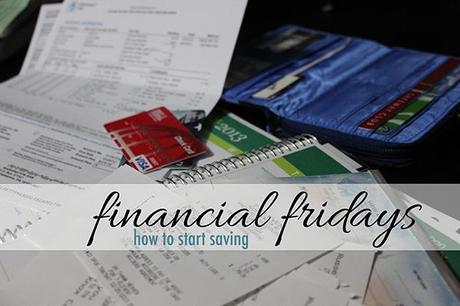
Now it's time to talk about saving. Everyone talks about it but not a lot of people seem to do it.
Simply put, saving is important. It's not always fun, but it's absolutely essential. You need to make sure you save, not only for the distant future (ie. things like a 4019(k) or an IRA), but also for the shorter long term future, the short term future, and for the freak accidents that happen in this life.
Prepare for the Worst
Before you start saving for anything else (I don't care how much you want the new iMac or the super cute purse at the boutique downtown), you absolutely must set up an emergency fund.
An emergency fund is essential to prevent you from going into crazy debt because of certain situations and to keep you from dealing with major stress every time an unexpected expense comes up.
An emergency fund is what it sounds like -- a fund for emergencies. It's money you don't touch at all unless it's legitimately for an emergency. It's difficult and sometimes you have to really discipline yourself to make sure you don't spend all of the money on the latest gadget or fashion trend, but it's really worth it when an emergency pops up.
According to Dave Ramsey, who is quite well-known for his expertise in getting out of debt (from his own personal experience) and building wealth, a fully funded emergency fund consists of 3-6 months of your expenses. This means that an emergency fund is going to look different for ever single person and family. It will be more the higher you are expenses are, which means my emergency fund as a single young adult is very different from the emergency fund my parents have set up. But all emergency funds to the same thing -- they give you a buffer for when the worse comes unexpectedly.
A little over a year ago, I was in a car accident. It was pretty minor. I didn't see a car when changing lanes and ended up hitting the side of a Ford Explorer with my little Toyota Camry. The result wasn't pretty. The car had nearly $2,000 in damage that I definitely had not planned on spending. On top of the damages to the car, I had to pay for a rental car while the car was in the shop. It was a pretty hefty bill and one that would've freaked and stressed me out and turned me into a giant puddle of tears pretty quickly, except for the fact that I had already begun building my emergency fund. It wasn't quite to the 3-6 month point yet, but I had well over $2,000 saved. That meant that I was able to repair the car and pay for the rental car without having to worry about how it was going to affect my other expenses for the month.
Last June, I had another surprise. I took a trip to the emergency room after having difficulty breathing and chest pain only to discover that I have Situational Anxiety Disorder, which just means I get more anxious than most people do in certain situations. The end result of that surprise trip to the emergency room was a $600 hospital bill. Definitely not something I was expecting to have to pay either. But I had my emergency fund all set up, so I was okay.
In one of the sessions from Dave Ramsey's Financial Peace University, they show a video where a guy goes out on the street and asks random people what they would do if they had a $5,000 emergency. The large majority of them said they would either take out a loan or get another credit card. Essentially, they'd have to go into debt in order to pay for the emergency.
That's scary to think about because emergencies do happen and it can be really difficult to get out of debt sometimes.
So before you start saving for anything else, set up your emergency fund. Take it from me, it will greatly relieve your stress when something breaks down or someone gets sick. Instead of freaking out about missing your rent or mortgage payment or not being able to eat for a month, you'll know that it's taken care of because you prepared in advance.
Next time, the saving conversation continues as we talk about long term, short term, and miscellaneous savings!
 ----------
---------- Got a question you want answered on Financial Fridays? Leave a comment or send an email!
Like what you're reading? Consider liking me on Facebook or following me on Twitter!
The post Financial Fridays: How to Start Saving appeared first on Shades of Shayes.
